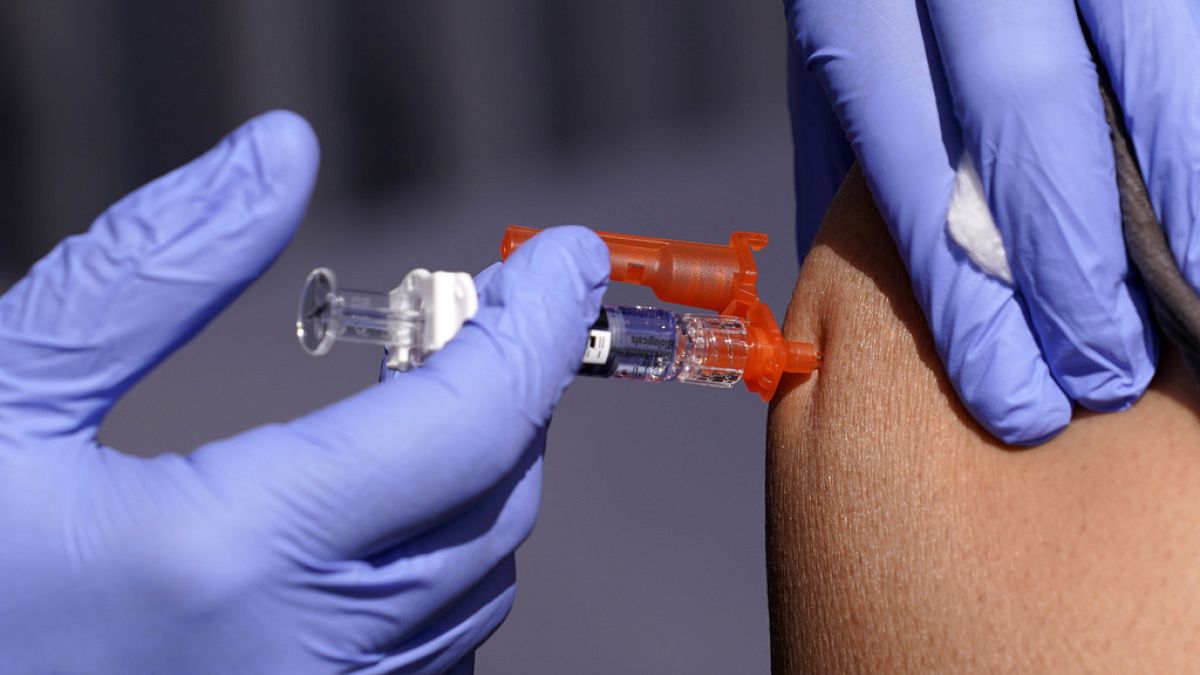From a boy band to AI granny: How AI was used to impact lives in 2024

How did AI impact our lives last year? Here are some examples of it being used in different areas.
From medicine to transport and communications, there were many examples of artificial intelligence (AI) being used in new sectors or to improve people’s lives last year.
In Italy, the city of Verona is trialling AI sensors to ease traffic congestion and improve road safety until the end of the year.
The smart sensors were installed in October in Porta Nuova, a busy intersection with five entrances and six exit lanes, to collect and transmit traffic data to an operations centre supported by local servers.
The AI system can detect vehicle types, speeds, and estimated arrival times.
There was also a host of innovative consumer tech that uses AI from new smartphones to new computers.
One new use of AI is a “granny” named Daisy who can waste phone scammers’ time.
The AI chatbot was designed by a UK telecoms company, Virgin Media O2, to chat with scammers so that customers don’t have to.
According to a study from BDO, a financial services firm, the total value of fraud in the UK reached about €2.69 billion in 2023, a 104 per cent increase from 2022.
Empowering AI for people with disabilities
Advancements in AI technology in 2024 opened new doors for people with disabilities.
Experts believe emerging technologies like AI voice conversion will increase accessibility to music.
The first hard-of-hearing K-pop boy band’s debut was made possible thanks to AI voice conversion.
‘Big Ocean’ recorded their talking and singing voices and applied AI models to a guide recording to improve their pitch and singing performances.
“When we listened to the completed version, it was incredibly moving on a personal level. We’ve heard that many people who listened to it also felt deeply touched and even cried,” Hans Choo, head producer of Muble, a Korean music production company that offered the group AI producing, told Euronews Next earlier this year.
However, experts warn that while the technology’s future is exciting, it comes with important responsibilities, specifically concerning the consequence of unequal access.
“As these technologies become more widely accessible, the gap between those who have access to them, and those who do not have access to them, will rapidly widen,” Ben Camp, a songwriting professor at Berklee College of Music, told Euronews Next in an email.
“It’s my hope that availability and accessibility is prioritised as much as development”.
In Switzerland, researchers tested a prototype software for an autonomous wheelchair in a lab in March.
Developed by researchers across Europe, the self-driving wheelchair may help people with disabilities cross the road with drone assistance.
“The big challenge that we are facing as a project team and project consortium is the hardware is there, but what we [are missing] is the software to control the system,” Francesco Flammini, a professor in autonomous systems safety at SUPSI, told Euronews Health this year.
Flammini said safe and responsible AI is crucial for developing an autonomous social navigation system like this smart wheelchair.
The project is expected to conclude in September 2025 with a full prototype with the potential for further developments in the years to follow, such as refining drone technology and establishing a legal framework for their use in urban settings.
For more on this story, watch the video in the media player above.
Video editor • Roselyne Min
Additional sources • Some video footage from the Associated Press
World News || Latest News || U.S. News
Source link



